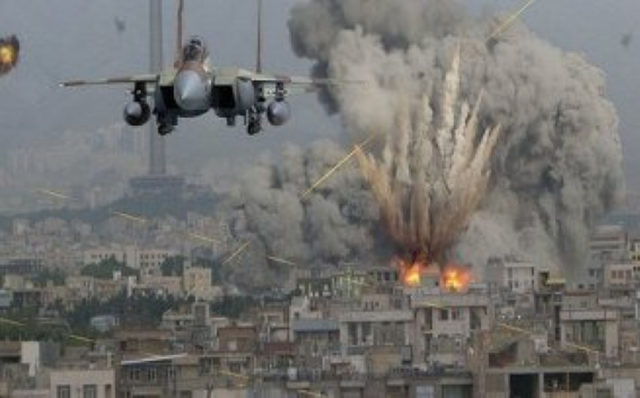After the Airstrikes: What Next for Yemen?

On June 9, 2015, as Saudi-led Gulf state forces pounded Houthi positions in Yemen, Jamestown hosted a small roundtable dedicated to a discussion on the unfolding civil war and the impact of foreign involvement entitled, “After the Airstrikes, What Next for Yemen?” The discussion featured speakers James Brandon, then-Editor of Terrorism Monitor, as well as Jamestown analyst Michael Horton. Mr. Brandon spoke on “Assessing the Impact of the Airstrikes on Yemen,” while Mr. Horton’s talk was titled “The Battle for Southern Yemen.” Both analysts provided a detailed overview of the main forces, groups and leaders involved in the Yemen conflict as well as spoke about the varying prospects for political, military and economic victories by the major players in the war.
Tuesday, June 9, 2015
12:00 P.M.–2:00 P.M.
The Jamestown Foundation
Seventh Floor Board Room
1111 Sixteenth Street, N.W.
Washington, D.C. 20036
Agenda
Welcome
12:00 P.M.
Glen E. Howard
President, The Jamestown Foundation
* * *
“Assessing the Impact of the Airstrikes on Yemen”
James Brandon
Managing Editor, Terrorism Monitor, The Jamestown Foundation
“The Battle for Southern Yemen”
Michael Horton
Analyst on Yemen for Jamestown
Moderator:
Glen Howard
Q & A
* * *
Conclusion
2:00 P.M.
Biographies
James Brandon
James Brandon is the Managing Editor of Jamestown’s Terrorism Monitor. He has an MA in Middle Eastern Studies from the School of Oriental and African Studies (SOAS) in London, and is an Associate Fellow of the International Centre for the Study of Radicalization and Political Violence (ISCR), based at King’s College London.
He formerly worked as a journalist, reporting from around the Middle East, Africa and Europe on a range of issues relating to Islamism and terrorism for a wide range of media. He lived in Yemen in 2002, studying Arabic and working for the Yemen Times newspaper, and then again in 2004-2005, when he worked for the Yemen Observer newspaper, while also freelancing for a range of international media. In 2005, he was arrested and detained by the Yemeni authorities after travelling to Sa’ada to report on the Houthi-government conflict there, one of the very few Western journalists to have done so.
He has been widely quoted by the international media, including being interviewed on CNN, the BBC and al-Jazeera, and he has spoken at wide range of governmental and non-governmental events and conferences in the United States, Europe, the Middle East and Australia.
Michael Horton
Michael Horton is an analyst whose work primarily focuses on Yemen and the Horn of Africa. He has written extensively on topics that include: tribe-state relations, indigenous approaches to counter-terrorism, AQAP, al-Shabaab and piracy for numerous publications including: Jane’s Intelligence Review, The Economist, IHS Safety at Sea, Islamic Affairs Analyst and Resource Watch. Mr. Horton has completed in-depth field based studies on aspects of Yemen, Somalia, Syria, Sudan and Egypt for government and private sector clients. His most recent projects include: an assessment of al-Shabaab’s organizational structure and TTPs; a study of militant organizations in Egypt’s Sinai Peninsula and an analysis of the Houthis’ political and military tactics.



